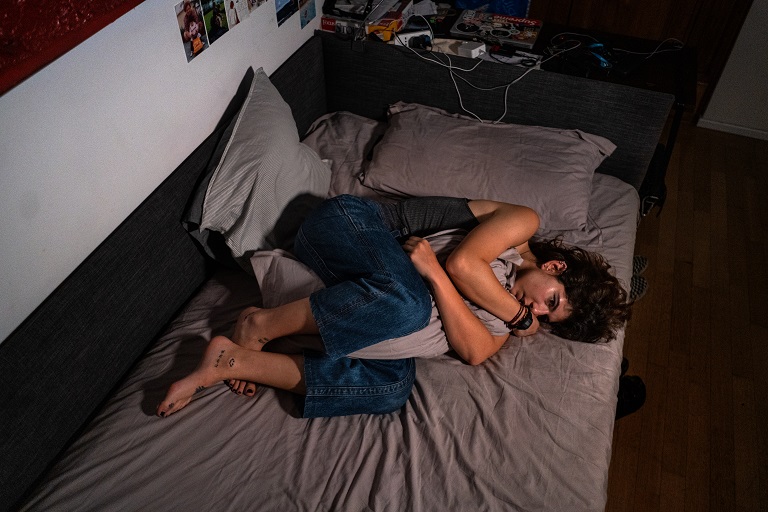I’m Not an Emergency: The Campaign On Adolescent Mental Health
9 September 2024

“Non Sono Emergenza” (“I’m Not An Emergency”) is a participatory campaign promoted by Con i Bambini as part of the Fund Against Educational Poverty in Minors. The campaign aims to raise public awareness about mental health issues in adolescents and promote active involvement of young people, with contributions from everyone.
“Adolescents are like strawberries in the desert.” This is a positive metaphor drawn from Marianne’s story, a girl who has suffered, and still partly suffers, from severe depression. Unlike many, she doesn’t close herself off or hide but speaks about it with her closest friends, those she trusts. By comparing her experience with them, she comes to understand that the anxiety and depression she suffers from is a common, shared struggle—almost a malaise of her generation, for which she no longer needs to feel guilty or ashamed. Marianna’s courage lies in her ability to speak up.
The same struggles are shared by Rosa, a 17-year-old girl with a sensitive, introverted personality. Her situation worsened during the lockdown, causing her to retreat into her home for days, months, and even years in a kind of self-isolation she finds difficult to break out of, despite the support of her family and school. Like a broken flower, Rosa can only open up to those who, like her, feel they have been harmed or hurt.
These are some fragments from the first testimonies collected by Riccardo Venturi, an internationally renowned photographer and two-time World Press Photo winner, and filmmaker Arianna Massimi, during their journey of meeting and listening to young people while investigating the issue of adolescent mental health. This journey from the North to the South of Italy, which began a year ago and is still ongoing, lies at the heart of the “Non Sono Emergenza” (“I’m Not An Emergency”) campaign, promoted by Con i Bambini as part of The Fund Against Educational Poverty in Minors. The campaign offers a different approach to the issue of adolescent mental health, combining artistic images with a careful selection and analysis of available data, best practices from educational communities, and, above all, direct engagement and listening to young people. It is an “alternative” narrative, that moves beyond the emergency and highly critical view of adolescents, highlighting the full dimensions of the phenomenon and promoting the involvement of the new generations.
Anxiety, depression, eating disorders, bullying and juvenile gangs , racism and second-generation citizen issues, sexual identity and isolation, environmental anxiety—these are some aspects of a complex and rapidly growing but still little-explored phenomenon. The new generations cannot be seen as an emergency but as a resource. Data shows adolescents are nearly twice as likely as adults to volunteer and participate in environmental, civil rights, and peace organizations. Despite the problems and difficulties, 60% of adolescents express a positive outlook on their prospects.
The campaign will be launched in a participatory manner until at least the end of the year. Over time, new campaign images and photographs, additional data and surveys, the documentary, videos, and stories from young people will be shared through the website www.NonSonoEmergenza.it and other dedicated social media channels. Practitioners and experts will provide useful suggestions for adults on listening to young people. Social media content creators will be involved in different aspects of the campaign, including many educational communities and adolescents supported by the Fund, and many more. At the start of the school year, a contest will be launched to promote young people’s viewpoints, dreams, and involvement—essential for the country’s future.
Any entity or organization wishing to join the campaign can do so through the website. By joining the more than 300 organizations that have already signed on, you will share the sense of urgency and demonstrate your commitment, becoming aware of being part of a community that educates, and listens to young people but learns from them too.
The well-being of the future generations must be a shared goal.


